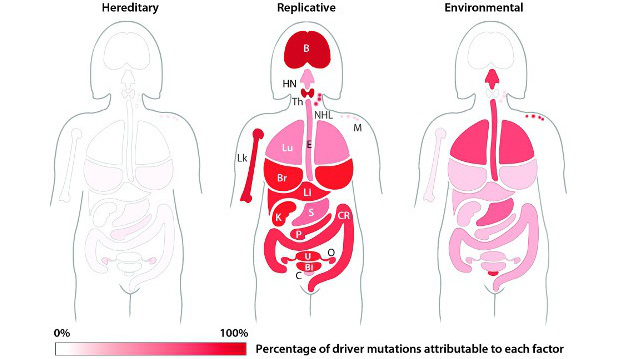In today’s article, we embark on an essential conversation about one of life’s most challenging moments: receiving a cancer diagnosis. We’ll delve into the initial reactions, the significance of seeking second opinions, the process of choosing the right doctor and treatment plan, building knowledge for informed decisions, and summarizing key takeaways. Throughout this journey, we emphasize the importance of being proactive, well-informed, and open to seeking multiple opinions when dealing with a cancer diagnosis.
Table of contents
Introduction
We’re about to explore revolves around the topic of cancer diagnosis and treatment. It’s a candid conversation where real experiences and insights come to light, shedding light on a subject that touches the lives of countless individuals and their loved ones.
The Importance of Being Well-Informed
Navigating a cancer diagnosis is a daunting task. However, being well-informed can make a significant difference. We’ll uncover how knowledge empowers individuals to make informed decisions, ultimately improving their journey through cancer treatment.
Initial Reactions to a Cancer Diagnosis
The Shock and Emotional Turmoil
Receiving a cancer diagnosis is an earth-shattering moment. We’ll discuss the whirlwind of emotions that accompany the news and how individuals cope with the initial shock. Personal stories will illustrate the courage it takes to face this reality.
Seeking Support Networks
In times of adversity, support from friends, family, and healthcare professionals is invaluable. We’ll explore the importance of leaning on these networks for emotional and practical assistance during the early stages of a cancer journey.
Seeking Second Opinions
The Significance of Second Opinions
Why are second opinions crucial in the realm of cancer diagnosis? We’ll uncover how different doctors may provide varying treatment recommendations and why seeking multiple perspectives can be a game-changer in the path to recovery.
Proactive Healthcare Decisions
Empowering patients to take charge of their healthcare decisions is a recurring theme. We’ll emphasize the importance of actively participating in one’s treatment plan, ensuring it aligns with their unique needs and preferences.
Choosing the Right Doctor and Treatment Plan
Selecting the Ideal Healthcare Team
Choosing the right doctor and healthcare team can be intimidating. We’ll provide guidance on evaluating a doctor’s qualifications and expertise, empowering patients to make confident decisions about their medical providers.
Open Communication for Clarity
Effective communication with healthcare professionals is vital. We’ll explore the benefits of asking questions to clarify treatment plans, ensuring patients have a clear understanding of their journey ahead.
Building Knowledge and Making Informed Decisions
Leveraging Online Resources
In today’s digital age, information is at our fingertips. We’ll discuss how individuals can use online resources and support groups to gather information and connect with others who’ve faced similar challenges.
Guidance from Organizations
The American Cancer Society and other reputable platforms play a crucial role in guiding patients. We’ll explore how these organizations offer valuable insights and resources to help individuals make informed decisions.
Continuous Evolution of Medical Knowledge
Medical knowledge and treatments are continually evolving. We’ll highlight the importance of staying up-to-date with the latest advancements and understanding how they might impact cancer treatment.
Summary and Closing Remarks
Value of Shared Wisdom
As we conclude, we’ll acknowledge the immense value of shared wisdom and experiences. By coming together to discuss cancer diagnosis and treatment, we collectively contribute to a brighter future for those facing similar challenges.
Encouragement for Engagement
We encourage our readers to engage with us, ask questions, and share their thoughts and experiences. Your voice matters, and together, we can foster a supportive community for those affected by cancer.
Gratitude for Sharing
We extend our heartfelt gratitude to all those who participated in this conversation. By sharing their insights and stories, they’ve illuminated a path of hope and resilience for others.
Conclusion
In summary, navigating a cancer diagnosis is an arduous journey, but it can be made more manageable by being proactive, well-informed, and open to seeking multiple opinions. By addressing the initial shock, seeking support, choosing the right healthcare team, and building knowledge, individuals can take control of their cancer journey. We hope this conversation serves as a beacon of guidance and support for those in need.
FAQs
When faced with a cancer diagnosis, it’s crucial to allow yourself to process your emotions, seek support from loved ones, and start researching reputable sources for information. Don’t rush into decisions, and consider seeking a second opinion to explore different treatment options.
Finding the right doctor involves researching their qualifications, expertise, and experience with your specific type of cancer. Additionally, it’s essential to have open and clear communication with potential healthcare providers to ensure they align with your treatment goals.
Yes, seeking a second opinion is highly recommended after a cancer diagnosis. Different doctors may offer alternative treatment approaches, and obtaining multiple perspectives can help you make an informed decision about your treatment plan.
Reputable sources like the American Cancer Society, National Cancer Institute, and well-established cancer support organizations provide reliable and up-to-date information about cancer diagnosis and treatment.
Many cancer support groups are available both in-person and online. You can connect with these groups through local hospitals, cancer centers, or by searching online platforms dedicated to cancer support and patient communities.
